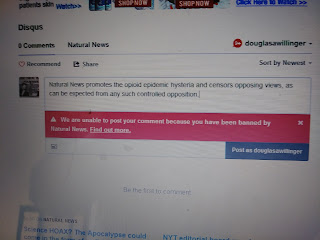Are Petro Chemical Corporate People Shilling Comments Boards?
https://en.wikipedia.org/wiki/Shill
A shill, also called a plant or a stooge, is a person who publicly helps or gives credibility to a person or organization without disclosing that they have a close relationship with the person or organization. Shills can carry out their operations in the areas of media, journalism, marketing or other business areas.
Shill typically refers to someone who purposely gives onlookers the impression that they are an enthusiastic independent customer of a seller (or marketer of ideas) for whom they are secretly working. The person or group who hires the shill is using crowd psychology to encourage other onlookers or audience members to purchase the goods or services (or accept the ideas being marketed). Shills are often employed by professional marketing campaigns. "Plant" and "stooge" more commonly refer to any person who is secretly in league with another person or organization while pretending to be neutral or actually a part of the organization he is planted in, such as a magician's audience, a political party, or an intelligence organization (see double agent).Cracked Magazine has run an article "5 Terrible Secrets Big Drug Companies Don't Want You To Know"
Shilling is illegal in many circumstances and in many jurisdictions[1] because of the potential for fraud and damage; however, if a shill does not place uninformed parties at a risk of loss, but merely generates "buzz," the shill's actions may be legal. For example, a person planted in an audience to laugh and applaud when desired (see claque), or to participate in on-stage activities as a "random member of the audience," is a type of legal shill.
Shill can also be used pejoratively to describe a critic who appears either all-too-eager to heap glowing praise upon mediocre offerings, or who acts as an apologist for glaring flaws. In this sense, such a critic would be an indirect shill for the industry at large, because said critic's income is tied to the prosperity of the industry.
The article has a robust array of comments.
Some of these delve into the issue of vaccines and the idea that such or some are to blame for the reported spike in cases of autism.
Most of such comments do not believe that vaccines are to blame.
Indeed, the use of vaccines per se long pre-dates this autism spike.
Thus, the cause would not be vaccines per se, but perhaps a recently introduced combination of vaccines. Or perhaps recently introduced vaccine formulations, perhaps some additive. Or perhaps a combination of such vaccines and something else introduced into widespread use. Or perhaps nothing to do with vaccines at all, but rather just something else introduced into widespread use. All of these possibilities would not mean that one would accept the idea that vaccines per se are to blame.
Indeed, as one such comment would note:
mduce88 6-23-2014
OK. "... It's probably not vaccines, it is more likely due to environmental toxins, the increase of heavy metals pollutants, etc., but it is a serious issue that deserves attention, every possible cause should be examined".Interesting. But I'm convinced there is something unnatural about the mind-blowing spike in Autism over the last 30 years or so. In 1975, the rate of autism was 1 in 5,000. At the end of 2009, it was 1 in 110. Today, it's risen even more than that to about 1 in 80. The condition being diagnosed more is not a reasonable explanation for such a dramatic rise in my opinion. It's probably not vaccines, it is more likely due to environmental toxins, the increase of heavy metals pollutants, etc., but it is a serious issue that deserves attention, every possible cause should be examined.
Yet notably, this comment has the highest negative rating in the article's entire comment section: -117, with 18 likes and 138 dislikes.
Are petro chemical corporate connected people stacking the deck with an exceptionally high participation in such comments sections?
Notably the article includes this:
#2 Planting Shills Everywhere
You can't read any product label nowadays without discovering that it's been endorsed by the American Society of Whatever, recommended by the National Center for Stuff, or enjoyed by the International Institute of Things.
As it turns out, most of these groups are pharmaceutical industry shills recommending medication based not on rigorous research, but rather the name that appears on their checks. Take the American Acne and Rosacea Society, for example. It's a theoretically impartial organization that's factually funded almost entirely by manufacturers of acne medication like Galderma, which has 13 of the 15 AARS experts on its payroll. So when AARS recommended a treatment for acne, it was no surprise that they went with Galderma's $2,500-a-year plan, instead of the equally effective $120-a-year generic alternative....
... Let's take what drug giant Wyeth did in 2002, after discovering that their hormone therapy drugs for menopause increased risk of breast cancer, heart disease, stroke, and blood clots. The problem was that the drugs Prempro and Premarin were already on the market, so instead of recalling them, the company spent $12 million forming the Council on Hormone Education, 85 percent of whose members were working for Wyeth. They then spent the next six years conducting an online course "educating" thousands of doctors about how totally awesome hormone therapy is, and how all that cancer/stroke business was probably due to something the patients did in their free time.'Everywhere' of course would include internet comments boards. 138 dislikes to 18 likes for a comment suggesting an exploration of environmental toxins, indeed!



Comments
Post a Comment